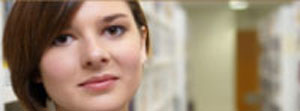Juan Lessing, MD
Listening, Connecting; A Soft-spoken Excellence
A Soft-spoken Excellence
One of the most touching letters Ethan Cumbler, MD, has ever read came from the wife of a patient who had recently passed away. In it, she thanked Juan Lessing, MD, (pictured at right) for the tremendous care he provided.
“Even in her time of grief, she reached out to talk about the profound difference that Dr. Lessing’s care had made for her husband over the course of multiple hospitalizations,” Dr. Cumbler said.
As director of the Acute Care for the Elderly (ACE) unit at University of Colorado Hospital, Dr. Cumbler has heard about Dr. Lessing’s soft-spoken excellence from their patients. He’s observed Dr. Lessing coming in on his day off and often recommends Dr. Lessing for the unit’s most challenging cases.
“Dr. Lessing brings a thoughtfulness and consideration of the path to correct diagnosis that is reminiscent of the great teaching doctors of another era,” said Dr. Cumbler. “He demonstrates a commitment to transparency with patients and their families that values patient autonomy and patient-centric communication.”
Connecting with patients in the ACE Unit
Dr. Lessing is part of a multidisciplinary, inpatient team that cares for people age 72 and older during their hospital stays.
“I couldn’t do the work I do if it wasn’t for our excellent team,” said Dr. Lessing. “Because of the care they provide, I have the ability to take time to sit and listen to my patients.”
It’s the best part of his job.
“We have patients on the ACE service who are more than 100 years old; patients who served in World War II and lived through the Great Depression,” he said. “And they share their wisdom and insight with such humility and grace and humor. I’m humbled to have the opportunity to listen to these stories.”
It’s through listening that Dr. Lessing is able to help guide medical decision-making in ways that make sense for the patient.
“Caring for older adults is never black and white,” he explained. “It’s about determining the right decision for this person at this point in their lives.”
For Dr. Lessing, being a good listener goes beyond the words he’s hearing. He’s also a keen observer.
“You can learn a tremendous amount by watching a person and looking at what’s in their room,” he said. “I ask about a ring they are wearing or a book they are reading, and it helps me understand what a person values and what they’ve experienced. Knowing their stories helps me get the person to where they want to be.”
Dr. Lessing believes being a good listener -- and modeling that behavior -- isn’t just great for his patients. It’s also great for his learners.
“I am the luckiest person. I’ve been surrounded by amazing teachers all my life. So I’m hoping to be a good role model for my learners. It’s where I want to have the greatest impact,” he said.
Guided by passion
Dr. Lessing didn’t take a traditional path to becoming a doctor. As an undergrad, he majored in art history.
“I’m glad I didn’t major in the sciences. When I mentor pre-med students, I encourage them to do what they're passionate about. When you do things you love, that will shine through,” he said.
After graduation, Dr. Lessing took part in the Princeton Project 55 Fellowships program, which led him to an internship with the University of California, San Francisco. There he helped patients make decisions about breast cancer treatment options.
“I’d been going down a different path, but after meeting with patients in the clinic and connecting with researchers, I realized that I wanted to dedicate my life to caring for others.”
Art continues to influence how Dr. Lessing cares for his patients. He’s thankful for the artwork he’s surrounded by at UCH. A painting outside of the emergency department, where’s he’s often called for patient admission, helps ground him.
“Even though I’m feeling rushed and stressed, this amazing painting stops me long enough to breathe and to remember the person I’m about to see is going through a very difficult experience.”
It reminds him to be present for the patient.
“It’s meaningful for them, and it’s meaningful for me as well.”
Dr. Cumbler believes Dr. Lessing’s ability to connect with patients is what makes him so outstanding.
“He’s the kind of physician that I would want caring for a member of my family or myself in a time of need,” said Dr. Cumbler.
Advisory Councils
University of Colorado Hospital
Children’s Hospital Colorado
Study Volunteers

Are you eligible?
Thousands of people volunteer for clinical trials each year at the School of Medicine. Some offer payment; others give free health exams and follow-up.
View the CU Anschutz Clinical Trials Website for volunteer opportunities.